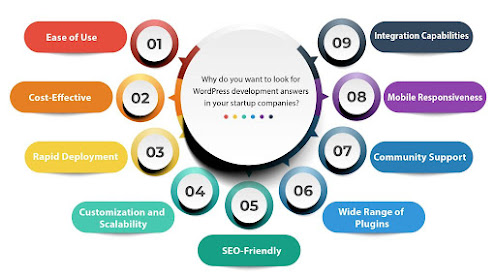Are you running an eCommerce business or considering starting one? If so, you're likely aware of the incredible potential for success in the online marketplace. However, along with the opportunities come challenges. In this blog post, we'll explore the top nine eCommerce pain points that business owners commonly face and discuss strategies to overcome them. Whether you're a seasoned eCommerce entrepreneur or just getting started, understanding and addressing these pain points is crucial for your success.The Challenge of Product Discovery
1.1. Navigating the Sea of Choices
In today's eCommerce landscape, there is no shortage of products and services available to consumers. While having an extensive product catalog is an asset, it can also be a major pain point. Customers often feel overwhelmed by the abundance of choices, making it challenging for them to find what they need quickly.
To address this issue, consider implementing robust search and filtering features on your eCommerce site. Enhance the user experience by categorizing products effectively and offering personalized recommendations. Make sure your product descriptions are clear and concise, helping customers make informed decisions.
1.2. Mobile Responsiveness
With the increasing use of smartphones for online shopping, it's vital that your eCommerce website is mobile-responsive. Failing to optimize for mobile can alienate a significant portion of your potential customer base. This pain point can lead to lost sales and frustrated customers.
Invest in responsive web design and thorough mobile testing to ensure your website functions seamlessly on various devices. A mobile-friendly design will not only improve the user experience but also boost your search engine rankings, as Google rewards mobile-responsive websites.
1.3. Slow Loading Times
One of the major pain points for eCommerce businesses is slow loading times. Online shoppers have high expectations for website performance. If your site takes too long to load, you risk losing potential customers to competitors with faster websites.
Optimize your site's performance by compressing images, using a Content Delivery Network (CDN), and minimizing the use of large multimedia files. A fast-loading website not only enhances the user experience but can also positively impact your search engine rankings.
Cart Abandonment Woes
2.1. Unexpected Shipping Costs
A common pain point for eCommerce businesses is cart abandonment due to unexpected shipping costs. When customers reach the checkout stage and are met with high shipping fees they weren't anticipating, they're more likely to abandon their carts.
To combat this issue, consider offering free or flat-rate shipping, especially for orders above a certain amount. Be transparent about shipping costs throughout the shopping process to minimize surprises at checkout.
2.2. Complicated Checkout Process
A lengthy and complicated checkout process can be a significant pain point for your customers. If your checkout process requires too many steps or asks for too much information, it can lead to cart abandonment.
Simplify your checkout process by minimizing the number of steps and asking for only essential information. Consider implementing guest checkout options, where customers can make a purchase without creating an account. Streamlining the process can help increase your conversion rates.
2.3. Trust and Security Concerns
Customers are rightfully concerned about the safety of their personal and financial information when shopping online. Addressing these concerns is crucial in reducing cart abandonment due to trust and security issues.
Invest in SSL certificates, use secure payment gateways, and prominently display trust badges on your website. These measures can instill confidence in your customers, making them more likely to complete their purchases.
The Challenge of Customer Retention
3.1. Lack of Personalization
In the eCommerce world, customers appreciate a personalized shopping experience. If your website fails to offer personalized product recommendations or content, you may struggle with customer retention.
Leverage data analytics and customer segmentation to tailor your website's content and product recommendations to individual preferences. Personalization can significantly enhance the customer experience and drive repeat business.
3.2. Inadequate Customer Support
Poor customer support can be a massive pain point for eCommerce businesses. When customers encounter issues or have questions, they expect quick and effective support.
Invest in a responsive customer support team that can address inquiries promptly. Consider implementing live chat and chatbots to provide real-time assistance. Exceptional customer support can set you apart from competitors and foster customer loyalty.
3.3. Inventory Management
Inventory management is a common pain point for many eCommerce businesses. Overstocked or understocked products can lead to lost sales or unnecessary carrying costs.
Implement robust inventory management software that tracks stock levels, predicts demand, and automates reordering processes. A well-managed inventory ensures that you have the right products available when your customers want them.
Further Study Suggestions
Conversion Rate Optimization (CRO): Dive deeper into techniques for optimizing your website to increase conversion rates and reduce cart abandonment.
Digital Marketing Strategies: Explore digital marketing channels, such as SEO, social media marketing, and email marketing, to drive traffic and sales to your eCommerce store.
User Experience (UX) Design: Learn about UX principles to create a user-friendly and visually appealing website that keeps customers engaged.
Related Topics
Payment Processing Solutions: Discover different payment gateways and processing solutions that can enhance your eCommerce business's efficiency and security.
Competitor Analysis: Conduct in-depth research on your competitors to stay ahead in the eCommerce industry.
Data Analytics for eCommerce: Explore how data analysis can help you make informed decisions and improve your eCommerce business's performance.
In conclusion, eCommerce businesses face various challenges, but by addressing these top nine pain points, you can significantly enhance your chances of success. From improving product discovery to reducing cart abandonment and enhancing customer retention, a strategic approach can help you navigate the complexities of the eCommerce landscape. Stay informed and open to innovation, and you'll be well on your way to eCommerce success.


